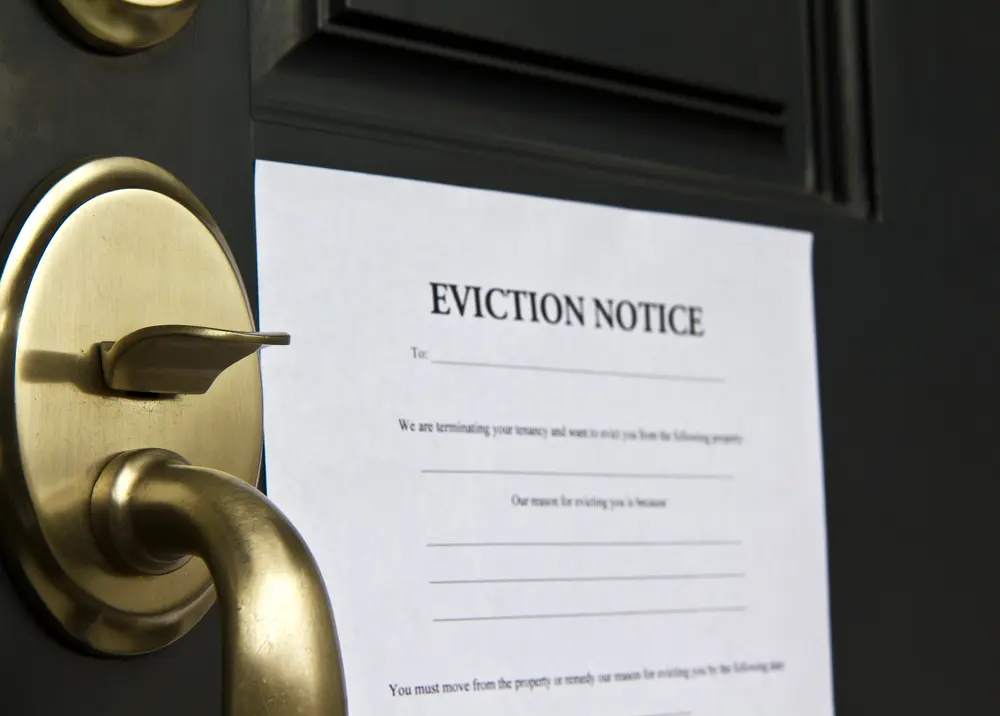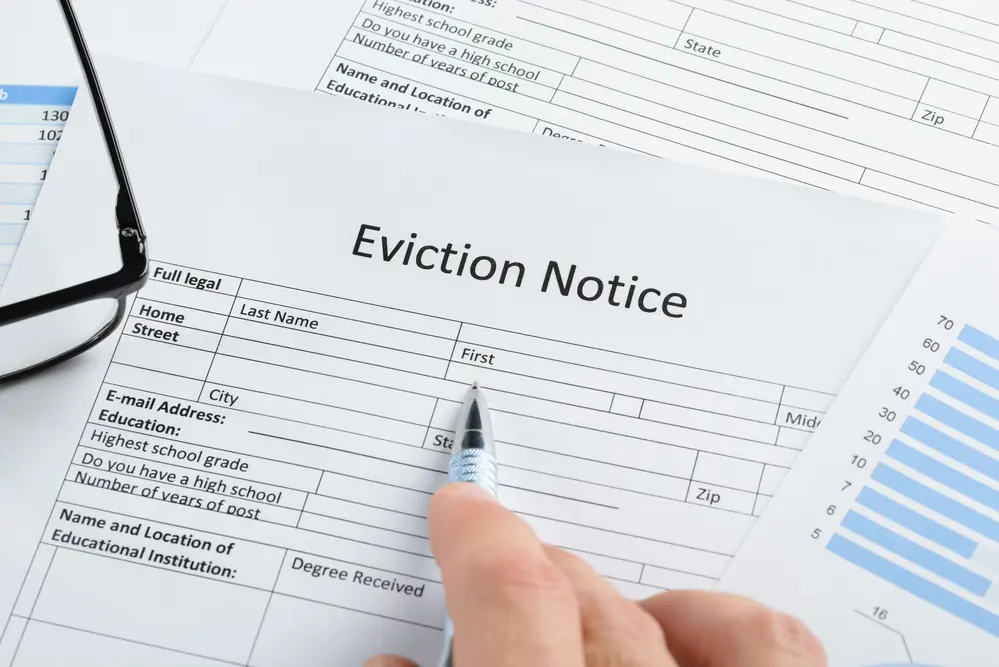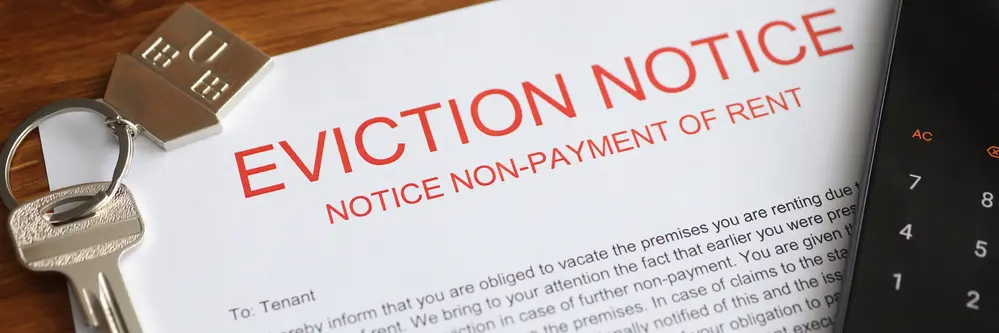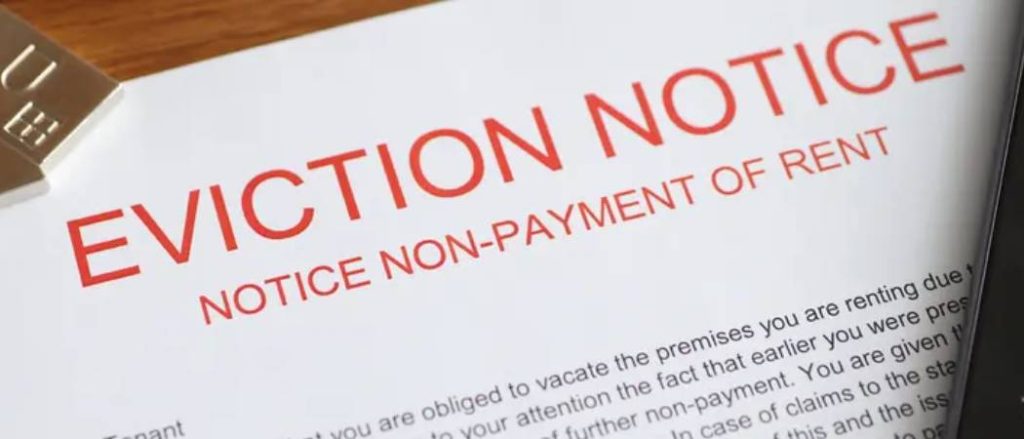Understanding the eviction process can be difficult, particularly when it comes to the complexities surrounding disabled tenants. While the length of the eviction process can vary depending on a multitude of factors, it’s crucial to acknowledge the unique circumstances and protections surrounding disabled tenants.
Ensuring fair housing is a legal and moral obligation for landlords. The Federal Fair Housing Act and local fair housing agencies play vital roles in safeguarding the rights of tenants with disabilities. This article will delve into these topics, provide guidance for both landlords and tenants, and give insight into how laws vary across different states.
Understanding Eviction
Eviction is a legal process by which a landlord can remove a tenant from their rental unit. There are many reasons a landlord might want to evict a tenant. For example, a landlord may evict a tenant for unpaid rent, violating lease terms, or causing significant damage to the property. In each case, there are specific procedures landlords must follow according to both federal law and state-specific eviction laws.

General Overview of Eviction
The eviction process begins when the landlord provides the tenant with a written notice. This notice must clearly outline the reason for eviction and the time frame in which the tenant must either remedy the situation or vacate the property. Should the tenant fail to comply, the landlord can then initiate formal eviction proceedings.
These proceedings typically involve court hearings, during which a judge will decide whether the eviction is justified. If the judge rules in favor of the landlord, in eviction cases the tenant will then be given a specific period to vacate, failing which, local law enforcement will enforce the eviction.
Why Might a Landlord Evict a Tenant?
A landlord may wish to evict a tenant for several reasons. Common grounds for eviction include failure to pay rent, violation of lease terms, causing damage beyond normal wear and tear, or conducting illegal activities within the rental unit. It’s essential to note that landlords must provide substantial evidence to support their claim for eviction.
The Eviction Process
The eviction process can be quite complex and varies by state. Generally, it starts with a notice to quit or pay, followed by a complaint filed in court, and then a hearing. If the judge rules in favor of the landlord, the tenant will be ordered to vacate the property within a specific timeframe. If the tenant doesn’t leave, the sheriff or local law enforcement agency may be enlisted to remove the tenant forcibly.
It’s important to note that the eviction process can take several weeks or even months, depending on the specifics of the case and the legal requirements of the state. The process can be delayed further if the tenant chooses to fight the eviction or if the tenant has a protected status, such as being disabled.
In all scenarios, landlords are advised to consult with a local legal expert to understand the eviction laws applicable to their state and situation. Organizations such as the National Housing Law Project offer resources and guidance for understanding eviction law.
If you do get evicted and need housing immediately, check our section 8 article.

Protection for Disabled Tenants Under Federal Law
Introduction to the Federal Fair Housing Act and Disabilities Act
The rights of disabled tenants are robustly protected at the federal level, primarily by two significant legislations – the Federal Fair Housing Act and the Americans with Disabilities Act (ADA). These Acts were designed to eliminate discrimination based on disability and to ensure equal housing opportunities for all Americans.
The Housing Act expressly prohibits discrimination in the rental, sale, or financing of dwellings based on a person’s disability, among other protected characteristics. Under this Act, landlords must make “reasonable accommodations” in their rules, policies, practices, or services to afford a person with a disability equal opportunity to use and enjoy a dwelling. In addition, they may need to allow tenants to make reasonable modifications to the living space to cater to their disability.
On the other hand, the ADA, while primarily focused on public accommodations and commercial facilities, does provide protections for disabled individuals in certain housing situations, particularly those involving public housing authorities or other housing providers that receive federal financial assistance.
How These Acts Prohibit Discrimination and Protect Disabled Tenants
Both the Fair Housing Act and the ADA have clear provisions that prohibit landlords from discriminating against tenants based on their disability status. Such discrimination might manifest in refusing to rent or sell housing, setting different terms or conditions, or falsely denying that housing is available.
Moreover, these acts uphold the right of disabled tenants to request “reasonable accommodations” or modifications at the expense of the tenant, if necessary. For example, a landlord may need to modify their “no pets” policy for a tenant who requires the assistance of a service animal or an emotional support animal due to their disability.
While the Fair Housing Act applies to virtually all types of housing, some exceptions apply, such as buildings with four or fewer units where the landlord lives in one of the units. For comprehensive information about these protections, tenants and landlords alike should consult the resources provided by the Department of Housing and Urban Development (HUD).
Reasonable Accommodations and Modifications Under Federal Law
One of the key protections for disabled tenants under federal law is the right to reasonable accommodations and modifications. Landlords may need to adjust their rules or practices or allow modifications to the tenant’s living space to ensure equal housing opportunities.
For instance, a landlord might have to provide a designated parking space close to a disabled tenant’s unit or allow a tenant with a mental illness to pay rent later in the month if their disability income arrives later. Any refusal by the the courts require a landlord to make such modifications or accommodations must be justified by an undue burden on the landlord’s business.

Protection for Disabled Tenants at the Local Level
Role of the Local Fair Housing Agency
At the local level, agencies operate to ensure that fair housing laws are enforced and tenants’ rights are upheld. These agencies play a critical role in investigating complaints, educating the public, and providing resources to landlords and tenants. They serve as intermediaries between landlords and tenants, helping to resolve disputes and promoting fair housing in their communities.
Tenants who believe their rights have been violated should contact their fair housing agency. Landlords also can consult these agencies for guidance on providing reasonable accommodations and complying with fair housing laws.
Introduction to Eviction Laws in Various States
While federal law provides a broad framework for protecting the rights of disabled tenants, individual state laws can also play a crucial role. These laws vary widely, with some states providing greater protections for tenants than federal law. As such, it is crucial for both landlords and tenants to understand the specific eviction laws in their state.
Disability-Specific Eviction Scenarios in Various States
Understanding eviction laws specific to disabled tenants can be particularly complex due to variations in state legislation. Below, we explore the unique provisions and protections in some key states.
California
California’s eviction laws are some of the most tenant-friendly in the country. Alongside the protections granted by the Federal Fair Housing Act, California has its own fair housing laws which provide additional protections to disabled tenants with disabilities.
For instance, California law requires landlords to make reasonable accommodations for tenants with disabilities and prohibits landlords from refusing to rent to a person because of a disability. Importantly, landlords may be required to make modifications to existing premises, at their own expense, if it would not pose an undue hardship.
If you are a disabled tenant in California and you believe your rights have been violated, you can contact the California Department of Fair Employment and Housing for assistance.
New York
In New York, eviction laws protect tenants from being evicted or unfairly removed from their homes. Similar to federal laws, New York State’s Human Rights Law and the New York City Human Rights Law offer extensive protections against discrimination, including discrimination based on disability.
The New York State Division of Human Rights and the New York City Commission on Human Rights enforce these laws, providing resources and assistance to disabled tenants facing eviction.
Landlords in New York are required to make reasonable accommodations to their rules, policies, practices, or services when such accommodations may be necessary to afford a person with a disability equal opportunity to use and enjoy a dwelling. If you’re a disabled tenant in New York and need support, you can reach out to the New York State Division of Human Rights or the New York City Commission on Human Rights for help.
How to Prevent Eviction as a Disabled Tenant
As a disabled tenant, understanding your rights and the legal protections in place is key to preventing eviction. Here are some strategies and actions you can take.
Requesting Reasonable Accommodations
As discussed earlier, disabled tenants have the right to request reasonable accommodations that will enable them to fully enjoy their living space. Such modifications could include installing grab bars in the bathroom, widening doorways, or providing a reserved parking space. If a tenant’s disability is not apparent, landlords may request reliable disability-related information that (1) is necessary to verify that the person meets the Act’s definition of disability, (2) describes the needed accommodation, and (3) shows the relationship between the person’s disability and the need for the requested reasonable accommodation made.
Keep in mind that landlords can refuse these modifications if they would impose an undue financial or administrative burden on the landlord or if they would fundamentally alter the nature of the landlord’s operations.
Communication is Key
Maintain open and respectful communication with your landlord. If you are facing difficulties (for example, if your disability has led to a temporary inability to work and therefore to pay rent), speak to your landlord as soon as possible. In many cases, landlords may be willing to work out a payment plan or find other solutions.
Do keep in mind that any agreements made should be in writing. These documents can be vital if you need to defend your rights later on. If you’re unsure about how to communicate your needs or requests, consider reaching out to your local fair housing for advice.
The Rights and Responsibilities of Disabled Tenants
Disabled tenants enjoy protections and rights under both federal and state laws. Under the Fair Housing Act, landlords are prohibited from discriminating against tenants based on their disability. This includes refusing to rent to a person because of their disability, treating a disabled tenant differently with less rent) than other tenants, and refusing to make reasonable accommodations for a tenant’s disability.
Furthermore, the Federal Fair Housing Act requires landlords to allow tenants with disabilities to make necessary modifications to their living unit at their own expense in order to fully use the housing.
Specific Rights in Different States
Different states offer varying levels of legal protection for disabled tenants. For instance:
In California, landlords are required to make reasonable modifications at their own expense, providing more protections than the federal law.
In New York, landlords are required to make reasonable accommodations for a disabled tenant, including changes to the property that would enable the tenant to use and enjoy the dwelling.
However, these rights do not absolve disabled tenants from their responsibilities. They must adhere to their lease agreements, respect property rules, and make timely rent payments.
The Importance of Rent Payment
Regardless of disability status, all tenants must pay their rent in full and on time. If a tenant fails to pay rent, they can be evicted, even if they have a disability. It’s essential for tenants to understand that while the law offers protection against discrimination for mental disability, it does not excuse non-payment of rent.
Landlords can and will initiate eviction proceedings for unpaid rent. Therefore, if a tenant is having difficulty making their rent payment due to circumstances related to their disability, they should immediately communicate this to their landlord. In many instances, the landlord might be willing to work out a payment plan or find other solutions.
How to Request Reasonable Accommodations
As a disabled tenant, you have the right to request reasonable accommodations that will allow you to fully use and enjoy your living space. This might include modifications like installing grab bars in the bathroom, widening doorways, or adding ramps.
To request an accommodation, you should communicate directly with your landlord, explaining what you need and why it’s necessary. It’s best to make this request in writing and keep a copy for your records.
Remember, landlords are not required to make accommodations that would cause them undue hardship more money. If your landlord refuses your request, and you believe it’s reasonable, seek advice from a fair housing agency or a legal professional.
Final thoughts
Navigating the complexities of housing law as a disabled tenant can be challenging. However, knowing your rights and responsibilities can go a long way towards ensuring you’re treated fairly.
Disabled tenants have the right to enjoy their homes just like any other tenant. This includes the right to reasonable accommodations and protection from discrimination. On the other hand, they are also obligated to meet their responsibilities, particularly when it comes to timely rent payment.
The protections afforded by law provide a robust framework, but they are not self-enforcing. Tenants and landlords alike must understand and apply these protections for them to be effective.
If you’re a disabled tenant facing potential eviction or other housing issues, don’t hesitate to seek help. Reach out to local agencies, seek legal advice, and know your rights. With the right knowledge and support, you can navigate the housing world successfully.
Frequently asked questions
What are the rights of disabled tenants under the Federal Fair Housing Act?
Under the Federal Fair Housing Act, disabled tenants are protected against discrimination based on their disability status. Landlords cannot refuse to rent an apartment to tenants because of their disability, impose different application or qualification criteria, or refuse to make reasonable accommodations that would allow the tenant to fully use and enjoy their housing. This includes both mental and physical disabilities.
What constitutes “reasonable accommodation” for disabled tenants?
A reasonable accommodation is any change in rules, policies, practices, or services that may be necessary for a disabled person to have an equal opportunity to use and enjoy their dwelling. This very specific accommodation can include physical modifications to the rental unit, such as installing grab bars in the bathroom, or policy adjustments like allowing a service animal in a “no pets” building. The key word here is “reasonable.” If an accommodation would cause an undue financial or administrative burden for the landlord, they may not be required to provide it.
How can disabled tenants prevent eviction?
Communication is key. If a disabled tenant is facing difficulties with rent payment or other lease terms due to their disability, they should inform their landlord and request reasonable accommodations. This may include a payment plan, or modifications to the unit to make it more accessible. If eviction proceedings begin, the tenant should reach out to a local fair housing agency or seek legal counsel to understand their rights and options.
What are the consequences for landlords who fail to make reasonable accommodations?
Landlords who fail to comply with the requirement to provide reasonable accommodations when necessary can face legal consequences. Under the Fair Housing Act, tenants can file complaints with the U.S. Department of Housing and Urban Development, or sue landlords in federal court. Penalties can include damages, injunctions, and attorney’s fees.
How does eviction law differ between states like California, New York, Florida, etc.?
Eviction laws can vary widely between states. For example:
In California, landlords are required to make reasonable modifications at their own expense, providing more protections than the federal law.
New York has strict rules around eviction and provides additional protections for tenants facing eviction.
In Florida, landlords are not required to make modifications at their own expense unless required by federal law.
These differences underscore the importance of disabled tenants understanding their rights under both federal and their respective state laws.
Remember, while this article offers an overview, it’s important to consult with a legal professional or a local fair housing agency for advice tailored to your specific circumstances.

